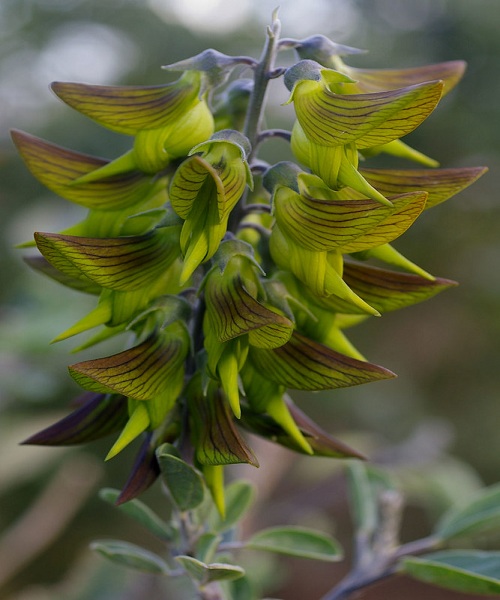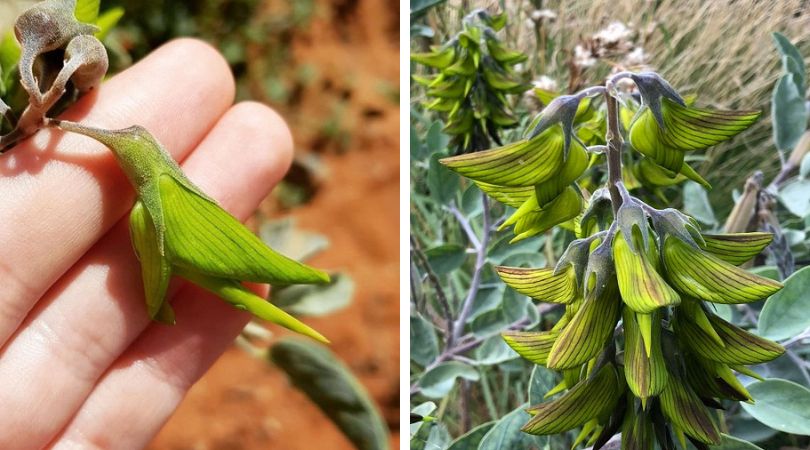Reddit user Octopus Prime once posted a picture of a plant with flowers that look like hummingbirds. As a result, the web went into a frenzy. Plants, like the ‘green flowerbird’ or’regal flowerbird,’ produce a phenomenon that is both perplexing and fascinating. It looks like an origami hummingbird but is really natural.
How it Started
When Reddit member Octopus Prime uploaded a photo of a peculiar plant, the community of plant lovers received a wonderful treat. Remember that this is peculiar for all the right reasons; what you’re witnessing is nothing less than a work of origami-level complexity by Mother Nature. In recent years, much acclaim has surrounded this extraordinary flower because its petals resemble the wings of hummingbirds.
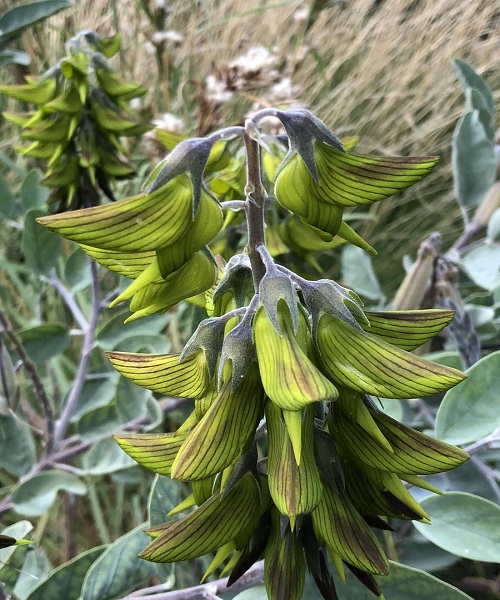
People Reaction
At first, people were baffled as to where this plant was indigenous to and why it was shaped like a bird. Fortunately, another Reddit user named SolitaryBee, a post-doctoral researcher specializing in flower evolution, added some much-needed context to the conversation. This exotic plant got its name from early 19th-century botanist Allan Cunningham, who coined the terms “green flowerbird” and “regal flowerbird” for this species. Evidently, the Reddit community was so impressed with the plant that they shared the post widely, propelling it to viral status.
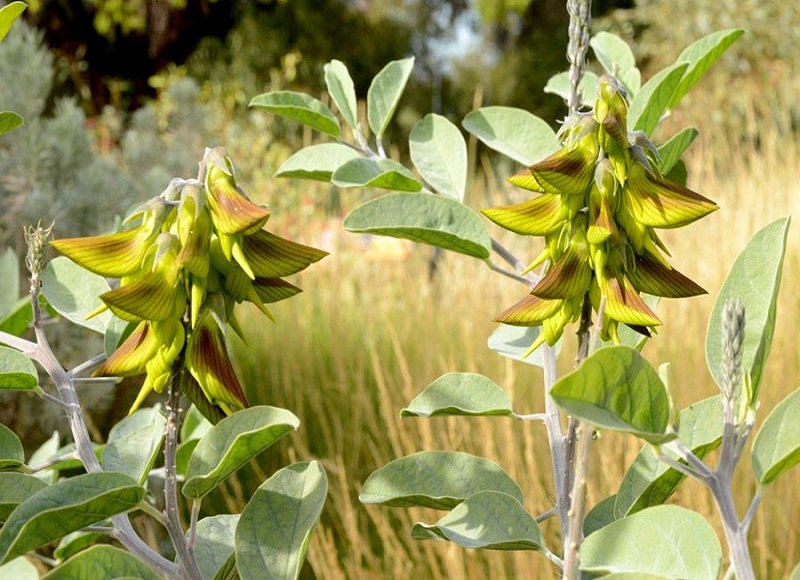
Plant History
The legume family, of which the chickpea and alfalfa are two edible members, includes Crotalaria cunninghamii, the scientific name. It grows naturally on the sandy dunes of interior northern Australia and is hence classified as a perennial plant. Strangely, despite the absence of hummingbirds in Australia, this flower does exceptionally well there.
The Latin name, Crotalaria cunninghamii, may be difficult to pronounce and remember, which is why it is also known as green birdflower or regal birdflower. Species of this genus can only be found in the interior of northern Australia. Because of its affinity for sandy soil, this plant is commonly associated with Mulga settlements, coastal locations, and sand dunes.
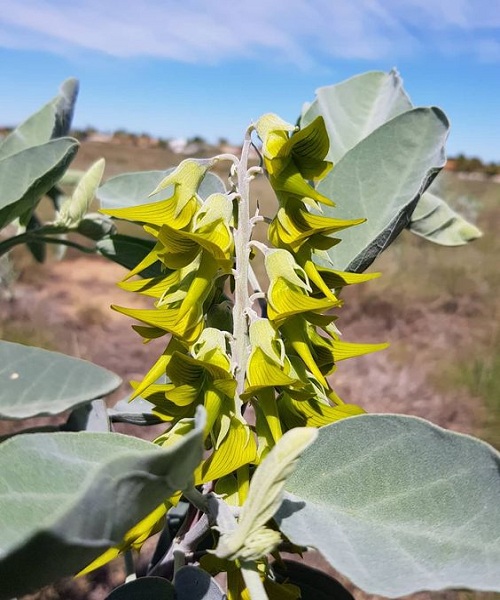
Unusual Appearance
The unique shape of the blooms has been attributed to evolutionary changes in form. However, user SolitaryBee stated that the flower’s resemblance to a bird to humans cannot have evolved adaptively because as a signal receiver, humans could not have done anything to promote the fitness of individuals that evolved this signal (to appear like a bird). Unless, of course, native Australians in dry parts of the continent bred and traded the plant for its unusual appearance (a bird).
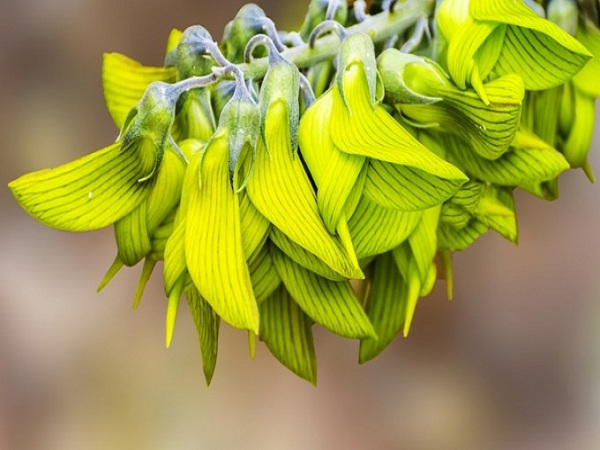
The Value of the Plant
It also turns out that indigenous Australians placed a high aesthetic and practical value n this bloom. Aboriginal people have traditionally employed the Green flowerbird as a medicine, most often in the form of an eyewash. This unusual flowering plant gets its form from a shared anatomical characteristic across legumes. Papilionaceous flowers are seen on some of them; these are characterized by irregular clusters of five smaller petals and one larger, top petal, also called a banner.
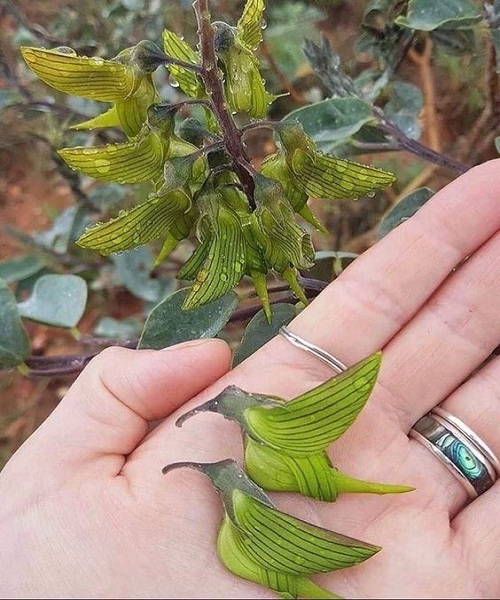
Optical deception
Aside from that, nobody outside humans would normally link these blooms to avian visitors. This is an example of simulacrum, an optical deception similar to that of “trompe l’oeil” paintings. The hummingbirds aren’t truly here, but our eyes are tricked into thinking that they are. Furthermore, the Australian Botanic Gardens and Parks Authority highlighted the green birdflower as the month’s in-season flower.
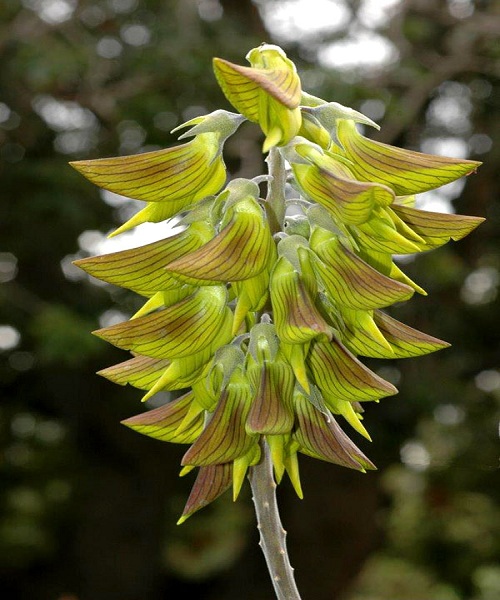
Photography material
These blooms can be found blossoming in Perth’s Kings Park thanks to a government-run conservation initiative. As a whole, the plant conjures an image of a dozen green hummingbirds swooping down to feed on the nectar of the flowers. The petals’ beautiful floating motion provides for stunning photography.
